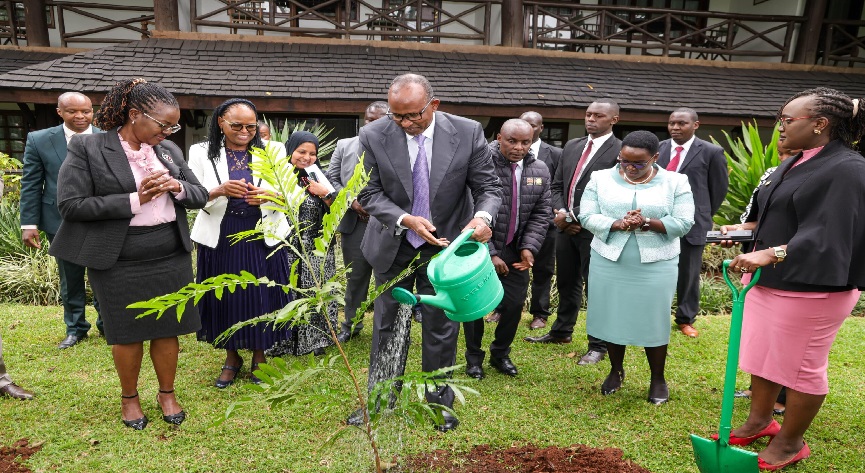The Judiciary has reiterated its commitment to addressing climate change, highlighting its pivotal role in delivering justice for those impacted by climate-related harm and promoting sustainable development.
During the Climate Justice Conference held at Moi University Annex Campus in Eldoret, senior judicial leaders unveiled ambitious initiatives to position courts as key advocates for environmental rights and sustainable governance.
Supreme Court Judge and Kenya Judiciary Academy Director General, Justice (Dr.) Smokin Wanjala, highlighted the judiciary’s growing influence in shaping climate jurisprudence.
Chief Justice Martha Koome noted that landmark rulings by the Environment and Land Court have set critical precedents in protecting natural resources, addressing environmental degradation, and safeguarding communities displaced by climate change.
“Climate change is fundamentally a justice and human rights issue. It exacerbates inequalities and disproportionately impacts the vulnerable and marginalized. Our courts must chart a path of justice that safeguards both humanity and the planet,” Chief Justice Martha Koome stated during her address.
Did you read this?
She emphasized the need for a justice-centered approach, balancing distributive and procedural justice to ensure equitable outcomes.
Greening Kenya’s Justice Sector
Hon. Winfridah Mokaya, Chief Registrar of the Judiciary, outlined transformative projects already underway to promote sustainability within the justice sector.
Forty court stations now operate on solar energy, with plans for further expansion.
The transition to paperless operations is expected to cut paper consumption by 50% by FY 2025/26.
Innovative green building designs, incorporating bio-digesters and renewable energy, have been implemented in courts such as Mombasa, Engineer, and Bomet.
In August, the Judiciary launched the Strategic Guiding Framework for Greening Kenya’s Justice Sector, urging all stakeholders to adopt environmentally friendly practices.
The Judiciary has reaffirmed its commitment to tackling climate change, emphasizing its unique role in delivering justice for those affected by climate-induced harm and driving sustainable development.
Speaking at the Climate Justice Conference held at Moi University, Annex Campus, in Eldoret, senior judicial leaders outlined ambitious initiatives aimed at positioning courts as champions of environmental rights and sustainable governance.
Supreme Court Judge and Kenya Judiciary Academy Director General, Justice (Dr.) Smokin Wanjala, highlighted the judiciary’s growing influence in shaping climate jurisprudence.
Chief Justice Martha Koome noted that landmark rulings by the Environment and Land Court have set critical precedents in protecting natural resources, addressing environmental degradation, and safeguarding communities displaced by climate change.
“Climate change is fundamentally a justice and human rights issue. It exacerbates inequalities and disproportionately impacts the vulnerable and marginalized. Our courts must chart a path of justice that safeguards both humanity and the planet,” Chief Justice Martha Koome stated during her address.
She emphasized the need for a justice-centered approach, balancing distributive and procedural justice to ensure equitable outcomes.
Greening Kenya’s Justice Sector
Hon. Winfridah Mokaya, Chief Registrar of the Judiciary, outlined transformative projects already underway to promote sustainability within the justice sector.
Forty court stations now operate on solar energy, with plans for further expansion.
The transition to paperless operations is expected to cut paper consumption by 50% by FY 2025/26.
Innovative green building designs, incorporating bio-digesters and renewable energy, have been implemented in courts such as Mombasa, Engineer, and Bomet.
In August, the Judiciary launched the Strategic Guiding Framework for Greening Kenya’s Justice Sector, urging all stakeholders to adopt environmentally friendly practices.









